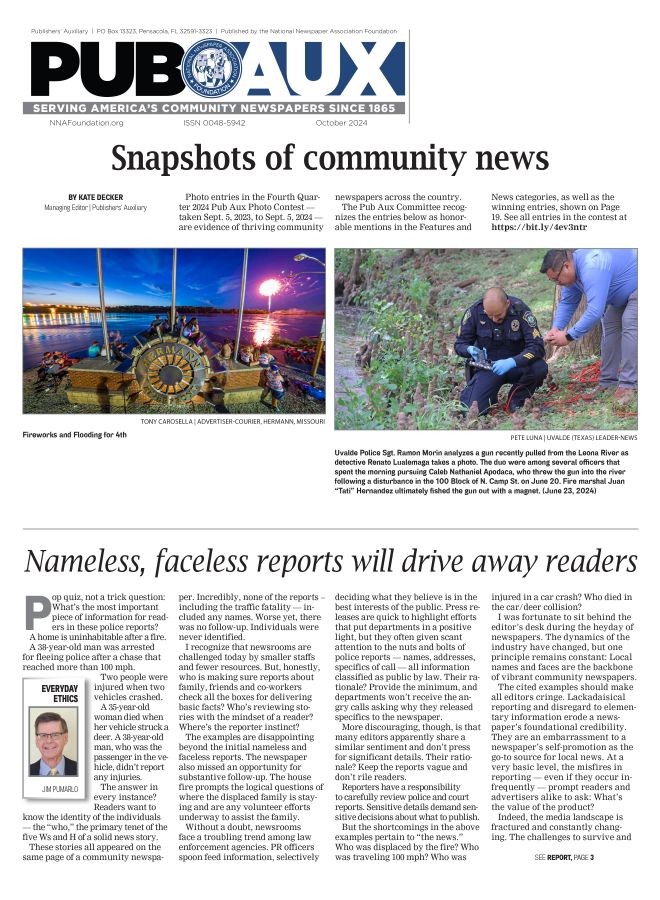Public notice on the list of state legislatures
Feb 1, 2013
State legislatures all around America are coming into session this winter and many will face pressure from local governments to permit them to eliminate public notice in newspapers and instead post information on their own proprietary websites.
The legislature in the Commonwealth of Virginia kicked off the season with hearings on several bills that would eliminate newspaper notice. One bill would permit governments in communities of 50,000 or more to use radio or TV to broadcast notices.
A sweeping bill to eliminate virtually all newspaper public notice was introduced in a 572-page bill in Arizona. And rumors have been flying around state press associations of bills pushed by Internet publishers to allow online-only notices to qualify the same as newspapers of general circulation.
The Public Notice Resource Center, of which the National Newspaper Association is a subscribing partner, tracks hundreds of public notice bills each year. To date, no state has adopted a wholesale elimination of newspaper notices, although most states have considered such bills. Utah briefly went down the government website track in 2008, but several years later repealed its law and reinstated the use of newspapers.
“The best place in the world to hide something is on the Internet,” said PNRC President Bradley Thompson, publisher of the Detroit Legal News. “Legislators sometimes think that they can save money by putting information on local government websites, even though most newspapers are posting their notices online already. But once they consider the extra costs in keeping those websites updated, authenticating the notices, keeping an archive and monitoring their own content to make sure notices are posted correctly and on time, they realize all they are doing is shifting from a tried and true private sector solution to loading new costs onto the salary lines in the government. Or worse, they mandate these local government websites without providing any funding, and give the town clerks a major headache to sort out. Then when legal problems arise because the notices weren’t handled correctly, the public gets to pay for even more of the problem.”
A 2010 study by the Pew Research Center Internet and American Life Project found that citizen use of local government websites is low.
It sampled the 61 percent of the American public that says they are Internet users, and found of that segment, only 11 percent visit local government websites. Use of the Internet to interact with government is slowly growing, but much of the growth comes from members of the public seeking information on government services, paying fines or taxes and looking for government forms.
Thompson said, “A measure of this discussion in the state houses comes from misunderstanding how people use the Internet. Some of it comes from confusion about the purposes of public notice. And some, in all honesty, comes from politicians who are mad at the local newspaper. When the facts are presented to legislatures, it becomes clear that the town hall website is not the place to go if you want transparency. Our job is to make sure the public knows where and how to use the notices in our newspapers and websites and to let the legislature know we’re on the job, taking it seriously.”







